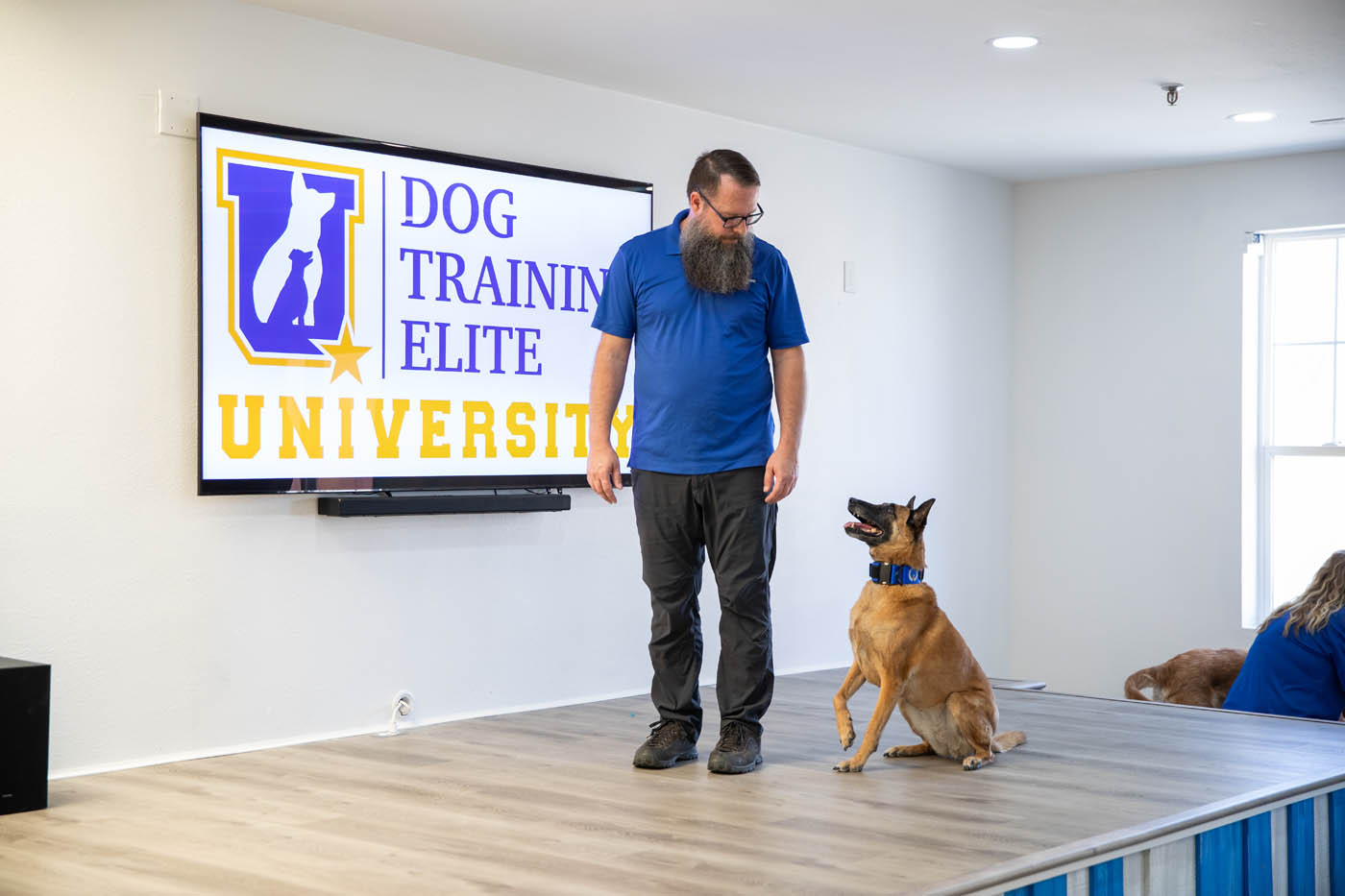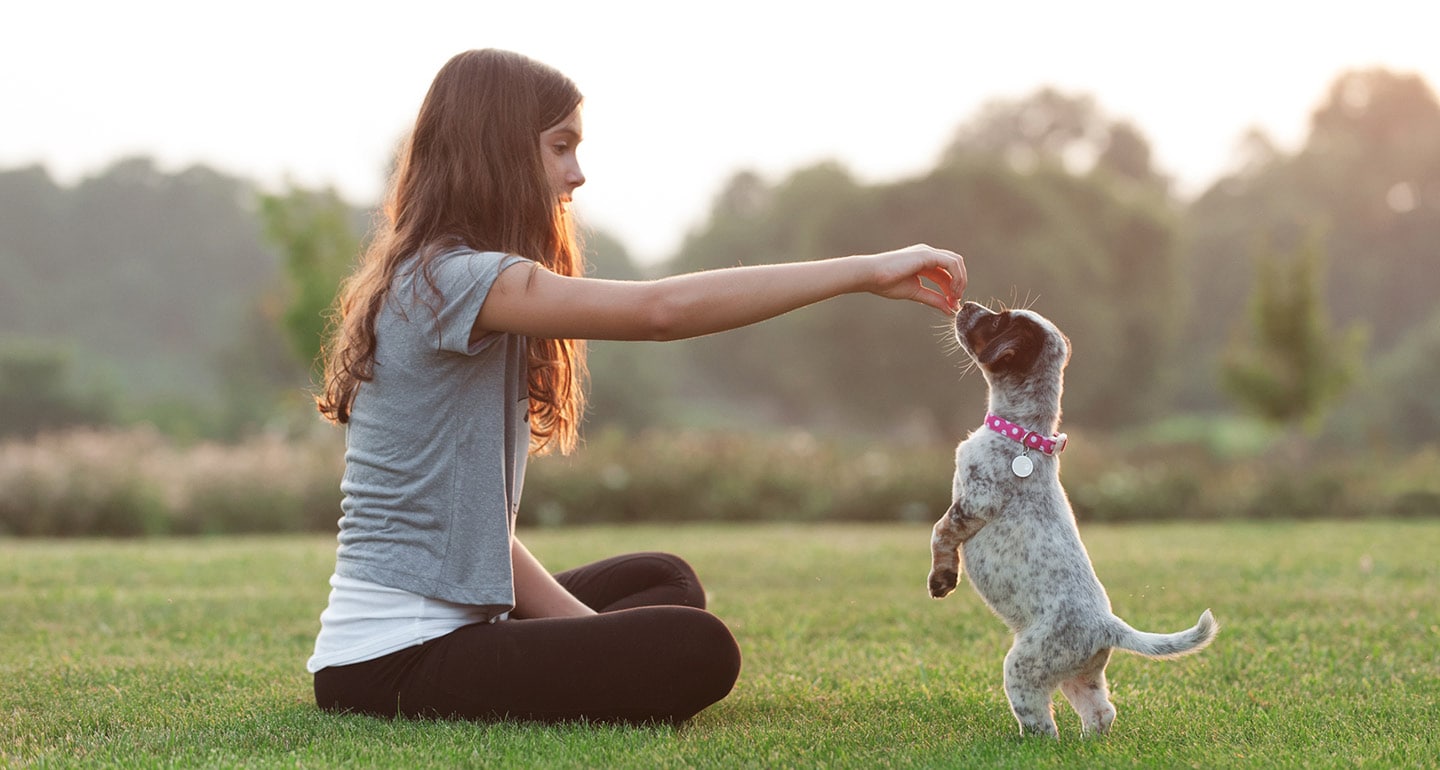Raise Your Abilities with Local Dog Training Charlotte Programs
Raise Your Abilities with Local Dog Training Charlotte Programs
Blog Article
Unlock Your Dog's Prospective: Proven Pet Dog Training Techniques for Success
Reliable dog training is a nuanced procedure that hinges on recognizing canine habits and employing clinically backed techniques. By including favorable reinforcement, developing clear commands, and prioritizing socialization, pet proprietors can cultivate an effective connection with their pets.
Comprehending Canine Actions
Comprehending pet habits is essential for reliable training and promoting a positive partnership between pets and their proprietors. A detailed understanding of canine body language, articulations, and social interactions is critical for acknowledging their feelings and needs. Pet dogs communicate mostly through non-verbal hints; for instance, a wagging tail may suggest enjoyment, while pinned ears can signal worry or entry.

Moreover, environmental elements play a considerable role fit a pet dog's habits. Modifications in regular, brand-new environments, or the presence of strange people can cause anxiety or stress and anxiety in pet dogs. Acknowledging these triggers enables owners to alleviate negative reactions and develop appropriate training approaches.
Inevitably, a deep understanding of pet dog habits lays the foundation for effective training methods, improving both actions and the general bond between the pet and its owner. dog training charlotte nc. This understanding is important for fostering a well-adjusted, satisfied canine companion
Favorable Reinforcement Techniques
Reliable training depends greatly on positive support methods, which have been revealed to produce substantial outcomes in shaping wanted habits in dogs. This strategy includes rewarding a pet dog for exhibiting details habits, thereby raising the possibility that these actions will be duplicated. Benefits can take numerous forms, consisting of treats, appreciation, playthings, or playtime, relying on what motivates the specific dog.
:strip_icc()/Steps-to-train-your-dog-1118273-7f3a74792b15472bb0d1f4884bd95875.jpg)
It is crucial to progressively eliminate rewards as the canine learns the actions, transitioning to periodic reinforcement. This technique maintains the actions gradually while stopping reliance on consistent rewards. By concentrating on positive reinforcement, instructors can grow a trusting partnership with their pet dogs, promoting a cooperative and healthy and balanced training atmosphere that boosts general obedience and performance.
Developing Consistent Commands
A basic element of effective pet dog training is the establishment of constant commands. Uniformity in commands is crucial for efficient interaction in between the dog and the trainer. When commands are uniform, pet dogs learn to connect certain words with wanted habits, which accelerates the training process and enhances understanding.
To develop consistent commands, it is essential that all relative utilize the very same terminology and gestures. If one person makes use of "rest" while another states "rest down," it can produce confusion for the canine. Select clear, unique words for commands and ensure everybody associated with the dog's training complies with these options.
In addition, repetition is vital. Reinforce commands with constant technique, guaranteeing that the pet dog obtains ample opportunities to respond properly. When a pet effectively adheres to a site here command, prompt positive reinforcement ought to comply with. This can be in the kind of deals with, appreciation, or playtime, solidifying the connection in between the command and the activity.
Last but not least, hold your horses. Developing constant commands requires time and initiative. With dedication and quality, you will certainly assist your dog develop a strong understanding of expectations, ultimately resulting in a well-behaved friend.
Socializing and Direct Exposure
Mingling a pet dog is necessary for promoting a well-adjusted and positive friend. This procedure includes exposing your pet to a selection of atmospheres, people, and various other animals to develop their social abilities and versatility. Early socializing, preferably between the ages of 3 to fourteen weeks, is vital, as it prepares for a dog's future actions.
During socializing, goal to offer favorable experiences in various setups, such as parks, active roads, and homes with other pets. Present your canine to numerous stimuli, consisting of noises, views, and smells, guaranteeing that each experience is rewarding. This exposure aids alleviate worry and anxiety, leading the way for a more resistant pet dog.
Participating in regulated group play sessions with various other dogs can likewise enhance social abilities, teaching your family pet appropriate communications and borders. Always check your dog's comfort degree throughout these experiences, slowly enhancing exposure as their self-confidence expands. Bear in mind, the goal is to produce a well-rounded animal that grows in diverse scenarios, promoting a harmonious connection with both human beings and other animals. Prioritizing socializing will significantly add to your pet dog's total happiness and actions throughout their life.
Conquering Common Educating Obstacles

An additional regular issue is diversion. Dogs might struggle to concentrate in busy or unknown settings. Gradually desensitize your dog to diversions by starting training in a silent atmosphere and gradually introducing more stimulations as they come to be efficient (Dog training). Favorable reinforcement methods, such as treats and praise, can keep motivation and emphasis.
Additionally, behavioral problems like leaping or too much barking can more helpful hints become aggravating. Address these by showing different behaviors, such as resting steadly when welcoming visitors. Uniformity and patience are important; enhance wanted actions consistently and avoid scolding, which can result in confusion.
Finally, acknowledge that each canine is distinct, and training timelines may vary. Tailor your method to your pet dog's private requirements, and seek expert assistance if required. With determination and the ideal methods, getting rid of these obstacles can lead to a well-trained, happy canine companion.
Conclusion
In verdict, opening a pet dog's prospective requires an extensive method that incorporates an understanding of canine actions, the application of favorable reinforcement strategies, and the facility of constant commands. Early socialization and direct exposure to varied atmospheres even more enhance a pet's versatility and confidence. By addressing usual training difficulties with tailored strategies and patience, a harmonious and participating connection between pet and trainer can be fostered, inevitably leading to a well-behaved buddy capable of growing in different situations.
Effective pet training is a nuanced procedure that hinges on understanding canine habits and employing medically backed techniques.Recognizing canine actions is necessary for effective training and cultivating a positive relationship between dogs and their owners.Reliable training depends greatly on positive reinforcement strategies, which have been revealed to yield considerable outcomes in forming preferred actions in canines. When commands are consistent, dogs discover to link particular words with preferred actions, which accelerates the training procedure and boosts understanding.
In conclusion, unlocking a pet's potential requires a thorough approach that integrates an understanding of canine actions, the application of favorable reinforcement techniques, and the establishment of regular commands.
Report this page